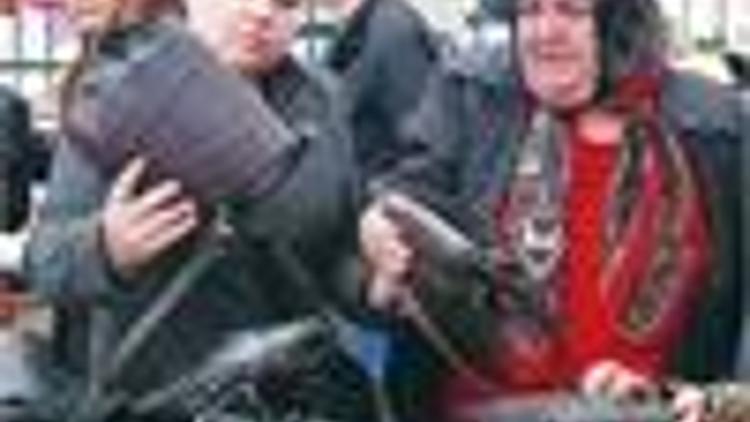23 days of limbo hit famous brands
Güncelleme Tarihi:

ISTANBUL - Compared to last year, sales of imitation products in Turkey have increased 60 percent, thanks to a 23-day-long legal limbo in January. After a government decree was annuled and a law was approved 23 days later, the Turkish market is flooded with imitation products .
A 23-day legal gap in the fight against imitation products has hit global brands in Turkey by causing the sale of knock-offs to boom by 50 to 60 percent.
"Due to the abundance of imitation products, we cannot sell genuine products any more," said one representative of a global brand. "Customers visiting our stores in the south are asking whether they are also selling imitation goods. Our sales in the south have stalled."
Global brands such as Calvin Klein, Diesel, Lacoste, Adidas and Converse are been affected by the delay in the legal arrangements on fighting imitation goods. A government decree that had been in effect for the past 13 years was annulled Jan. 5 because the necessary changes could not be made in the period the Constitutional Court gave to the government. On Jan. 28, a law that changed the decree to protect original brands came into effect.
Lawsuits result in acquittals
But the 23 days between the two dates were enough for imitators to seize market share. First, nearly 20,000 lawsuits against imitators resulted in acquittals, meaning that confiscated goods will be returned to the defendants. January was also a boom time for counterfeit production, with the unregistered economy upping the ante and imitation products roaming free in the market. Sales of imitation products, whose annual volume is estimated at $4 billion, rose 50 to 60 percent.
Imitations that were previously sold clandestinely in the south are now everywhere, said Vehbi Kahveci, chairman of the board of directors at the Registered Products Association, or TMD. But Güner Tok, a lawyer for the Puma and Converse brands, said the real boom in imitation products would come six months later.
"We are appealing against the decisions of acquittal and return of confiscated products," Tok said. "But six months later, the returns will start. This is a catastrophe for brands."
The legal struggle against imitation has been waged under a government decree since 1995. But the decree became baseless after the Constitutional Court ruled last year that crime and punishment could be defined only by law, annuling the arrangement. A draft law was only prepared after the court decision by then-Industry and Trade Minister Zafer Çağlayan. The law came into effect Jan. 28. But during the 23-day interim period, the fight against imitation products had no legal basis. As this interval coincided with a period of increased production, imitators started flooding the market.
Due to this "lawless" period, Kahveci said, previously confiscated imitation goods must be returned to their owners. "This situation renders imitators as strong as they were before," he said. "Compared to last year, imitation products are on the rise. The products imitators produced in January are now flooding the market. Especially in tourist resorts such as Side, Kundu, Marmaris and Bodrum, fake brands were sold clandestinely in the past. Now the counters and bazaars are full of imitation products sold openly."
The legal limbo in January also resulted in the abatement of all lawsuits retroactively, Kahveci said. "All that has been done since 1995 has gone down the drain," he added. "With the new law, the struggle started from scratch. There is still no criminal justice in patents and designs. And people are not resorting to legal means, as it costs a lot."
Calvin Klein is among the most imitated brands in Turkey. Vedat Stamati, a partner of Çiçek İç Giyim, the Turkish distributor of the global brand, said imitations harm both the brand’s image and global brands’ trust toward Turkey.
"We cannot sell the genuine product because of the abundance of imitation," Stamati said. "Our sales in the south are not rising an inch." Although the problem of imitation is not a recent one, Stamati said, it has become more chronic. "The state had to take precautions years ago," he said.

